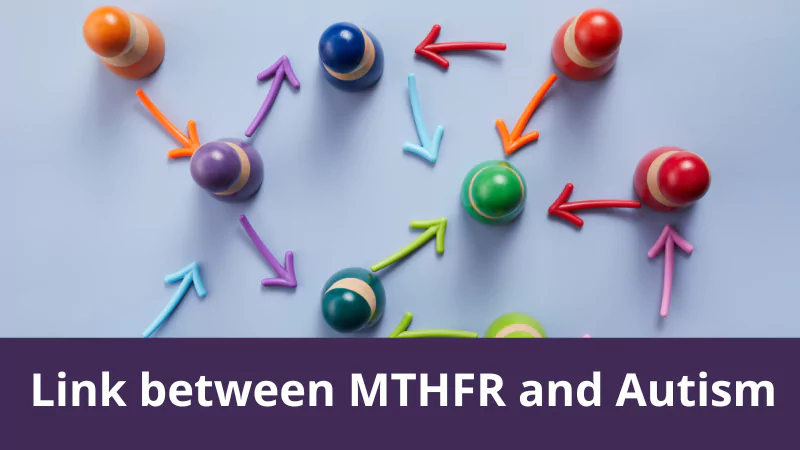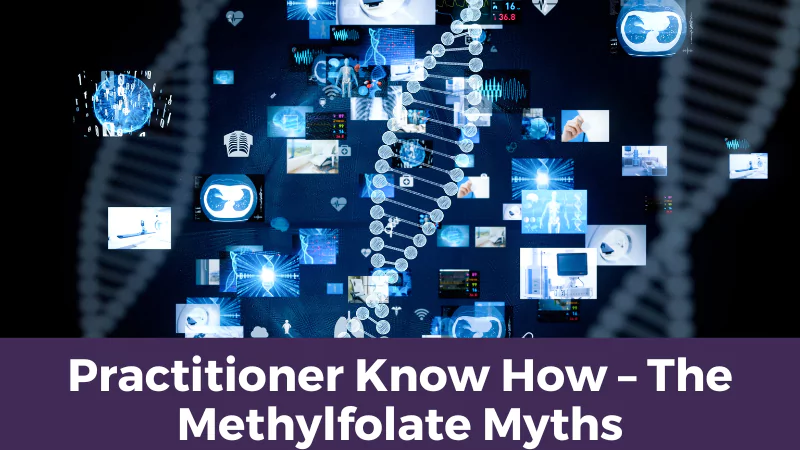Autoimmune thyroid disorders, including Hashimoto’s thyroiditis and Graves’ disease, are among the most common autoimmune conditions worldwide. These disorders arise from a combination of genetic predisposition, environmental triggers, and immune dysregulation. While environmental factors like stress, toxins, and diet play a role, understanding the genetic components offers valuable insights for personalized treatment strategies.
This guide explores the role of key genetic factors, particularly COMT (Catechol-O-Methyltransferase) and CYP1B1(Cytochrome P450 1B1), in the pathogenesis of autoimmune thyroid diseases. For practitioners, identifying and addressing these genetic predispositions can provide a more targeted approach to managing and potentially mitigating these conditions.
Understanding Autoimmune Thyroid Disorders
Hashimoto’s Thyroiditis
Hashimoto’s is characterized by an underactive thyroid (hypothyroidism) caused by chronic inflammation and destruction of thyroid tissue. It is associated with elevated TPO (thyroid peroxidase) antibodies and often manifests as fatigue, weight gain, and cold intolerance.
Graves’ Disease
Graves’ disease leads to an overactive thyroid (hyperthyroidism) driven by the production of thyroid receptor antibodies (TRAbs) that stimulate excessive thyroid hormone production. Symptoms include anxiety, rapid heart rate, weight loss, and heat intolerance.
Both conditions share common genetic and environmental underpinnings but present differently in terms of thyroid hormone activity and antibody profiles.
The Genetic Factors: COMT and CYP1B1
1. COMT (Catechol-O-Methyltransferase)
The COMT gene encodes an enzyme responsible for breaking down catecholamines (dopamine, norepinephrine, and epinephrine) and metabolizing estrogen. Variants in this gene influence how efficiently these processes occur, which can impact thyroid health and autoimmunity.
How COMT Affects Autoimmune Thyroid Disorders
- Estrogen Metabolism:
- High estrogen levels, common in individuals with slower COMT activity (e.g., COMT slow variants), increase thyroid-binding globulin (TBG). This reduces the availability of free thyroid hormones, exacerbating hypothyroid symptoms.
- Estrogen dominance also contributes to immune dysregulation, potentially worsening autoimmune activity.
- Stress Response:
- Slow COMT variants struggle to clear stress hormones effectively, leading to prolonged cortisol elevation. Chronic stress exacerbates autoimmune thyroid conditions by increasing reverse T3 (rT3) and reducing active T3 levels.
- Oxidative Stress:
- Inefficient COMT function can increase oxidative stress, a key driver of thyroid tissue inflammation in Hashimoto’s and Graves’ disease.
Clinical Implications of COMT Variants
- Patients with COMT variants may benefit from:
- Estrogen clearance support: Use DIM (diindolylmethane), calcium D-glucarate, or liver-supportive herbs.
- Stress management: Encourage mindfulness, adaptogens like ashwagandha, and magnesium supplementation.
- Methylation support: Provide methylated B vitamins to enhance COMT function if methylation pathways are suboptimal.
2. CYP1B1 (Cytochrome P450 1B1)
The CYP1B1 gene encodes an enzyme involved in the metabolism of estrogen and detoxification of environmental toxins. Variants in CYP1B1 can lead to the accumulation of hydroxyestrogens, potent estrogen metabolites with pro-inflammatory properties.
How CYP1B1 Affects Autoimmune Thyroid Disorders
- Estrogen Dominance and Thyroid Antibodies:
- Elevated estrogen metabolites, often seen in CYP1B1 variants, can increase oxidative stress within the thyroid gland, driving up TPO antibodies in Hashimoto’s and worsening thyroid inflammation.
- Toxin Sensitivity:
- CYP1B1 variants may impair detoxification pathways, increasing sensitivity to environmental toxins such as bromides, fluorides, and chlorides, which are known to disrupt thyroid function.
- Thyroid Hormone Conversion:
- Toxins that accumulate due to impaired CYP1B1 activity may hinder the conversion of T4 to T3, leading to hypothyroid symptoms even when TSH and T4 levels appear normal.
Clinical Implications of CYP1B1 Variants
- Patients with CYP1B1 variants may benefit from:
- Detoxification support: Use glutathione, N-acetylcysteine (NAC), and cruciferous vegetables to support phase 2 liver detoxification.
- Estrogen modulation: Incorporate liver support and antioxidant therapy to reduce oxidative stress.
- Environmental toxin avoidance: Advise reducing exposure to halides and heavy metals, and switching to fluoride-free toothpaste and water sources.
Other Genetic Factors Influencing Autoimmune Thyroid Disorders
In addition to COMT and CYP1B1, several other genetic factors play a role:
MTHFR (Methylenetetrahydrofolate Reductase)
- Impaired methylation due to MTHFR variants reduces the conversion of homocysteine to methionine, increasing oxidative stress and thyroid inflammation.
- Clinical Strategy: Supplement with methylated B12 and folate to enhance methylation.
HLA-DR (Human Leukocyte Antigen)
- Certain HLA-DR haplotypes are linked to increased susceptibility to autoimmune diseases, including Hashimoto’s and Graves’.
- Clinical Strategy: Focus on reducing immune triggers (e.g., gluten, infections, and environmental toxins).
TNF-α (Tumor Necrosis Factor Alpha)
- Variants in TNF-α can increase inflammation, worsening autoimmune thyroid damage.
- Clinical Strategy: Use anti-inflammatory strategies such as omega-3 fatty acids, turmeric, and low-inflammatory diets.
Integrative Approaches for Genetic Predispositions
For practitioners, addressing the genetic aspects of autoimmune thyroid disorders involves a holistic approach. Here’s a roadmap:
1. Genetic Testing
- Test for COMT, CYP1B1, MTHFR, and other relevant SNPs to identify patient vulnerabilities.
2. Personalized Nutrition and Supplementation
- Tailor interventions based on genetic findings:
- COMT and CYP1B1: Emphasize liver detoxification, estrogen metabolism support, and antioxidants.
- MTHFR: Support methylation with active B vitamins.
3. Lifestyle Modifications
- Stress management: Focus on mindfulness, adaptogens, and balancing the HPA axis.
- Toxin avoidance: Reduce exposure to environmental halides and heavy metals.
4. Immune System Modulation
- Address gut health with probiotics and glutamine to reduce autoimmune triggers.
- Eliminate gluten and dairy, which may exacerbate autoimmunity.
Conclusion
The interplay between genetics and autoimmune thyroid disorders underscores the importance of a personalized approach to thyroid health. Variants in COMT and CYP1B1 influence estrogen metabolism, stress response, and detoxification—factors that directly impact thyroid function and autoimmunity.
By understanding and addressing these genetic predispositions, practitioners can craft targeted interventions to reduce inflammation, support hormone balance, and improve thyroid outcomes. Integrating genetic insights with environmental and lifestyle modifications offers a powerful strategy for managing autoimmune thyroid disorders effectively.










